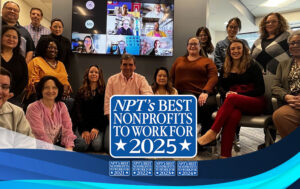Sarah Ford | May 1, 2014
Empowering Movements for Global Education Reform
By Wendy Kopp
Some time ago, I attended a gathering of social entrepreneurs who went around and around debating whether attaining significant scale was important, or whether social entrepreneurs would be better off staying small and working instead for system-level change.
The answer really depends on your theory of change. For the social enterprises around the world that form the Teach For All education network, that strategy centers around cultivating and supporting future leaders who will enact systems change in their nation. The goal, borrowed from Teach For America, is to train a sufficiently large number of local, regional, and national leaders who possess the understanding and conviction needed to push for change. The change we seek is straightforward: to ensure that all children have the opportunity to attain an excellent education.
Hence, our theory of change at Teach For All is not to grow to the point where the partnering organizations provide all—or even a substantial portion—of a nation’s teachers or leaders. Rather, the goal is for each national organization to reach a scale at which it produces enough leaders to ultimately transform the system.
With that goal in mind, Teach For All network organizations are asking themselves several important questions: How do we compete with our nations’ top recruiters to attract talent; how do we improve and scale systems for training and supporting teachers so they succeed in their classrooms and learn lessons for a lifetime of leadership and advocacy; and how do we accelerate teachers’ development as leaders who work collectively to bring about fundamental change?

Get Resources and Insights Straight To Your Inbox
Explore More Articles
Data Processor & Customer Service Representative, Charitable Funds Management Solutions
Reporting Structure: Director, CFMS Term: October 2025 to February 2026 Schedule: Full-Time; Monday-Friday up to 37.5 hours per week. Rate: $20 per hour Overview of…
Read ArticleCustomer Support Agent (Remote – Part Time)
Department: Charitable Funds Management Solutions We are a nonprofit charitable organization looking for skilled individuals who can coordinate multiple client requirements related to fund processing and…
Read ArticleGet Resources and Insights Straight To Your Inbox
Receive our monthly/bi-monthly newsletter filled with information about causes, nonprofit impact, and topics important for corporate social responsibility and employee engagement professionals, including disaster response, workplace giving, matching gifts, employee assistance funds, volunteering, scholarship award program management, grantmaking, and other philanthropic initiatives.



